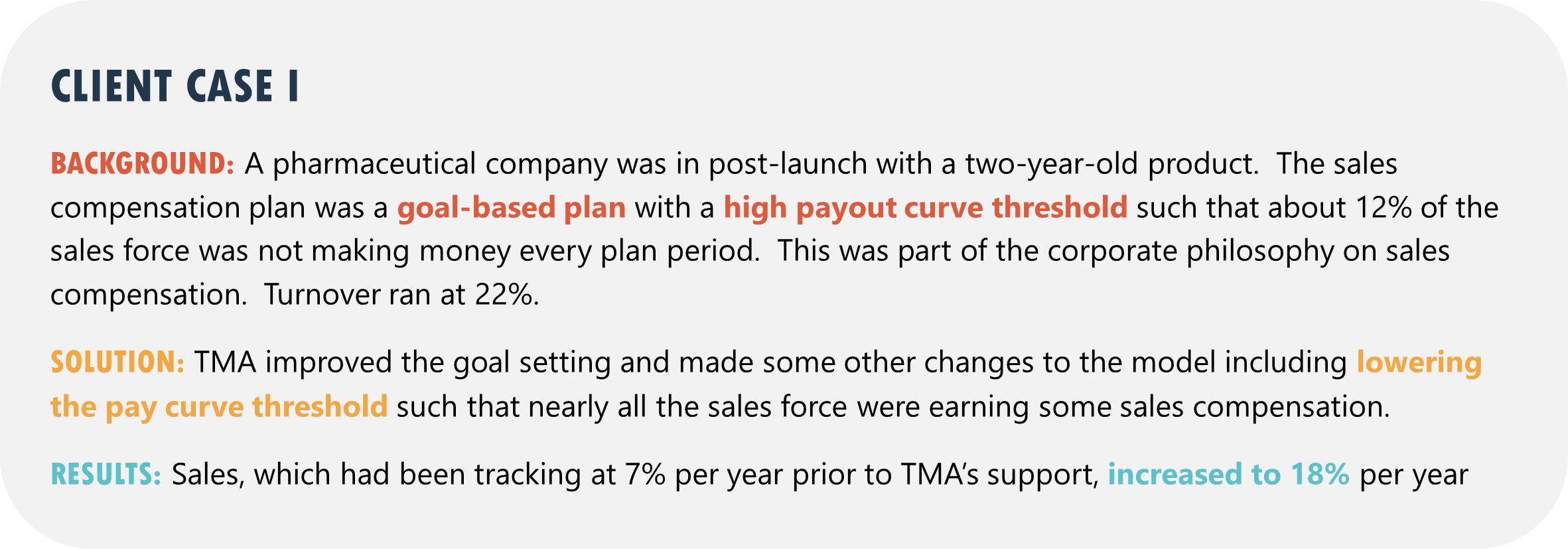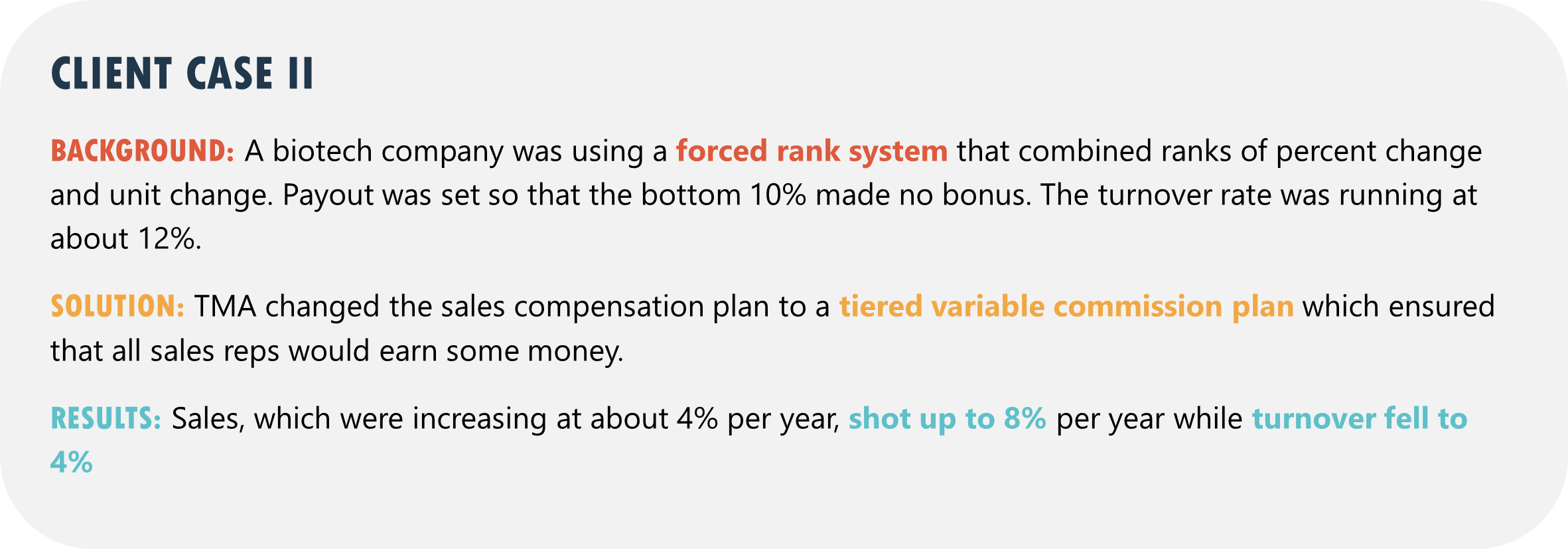How Many Sales Representatives Should be Out of The Money?
Challenge
An old belief that is still prevalent within a few BioPharma companies is that 10% or more of one’s sales force should not make any sales compensation bonus. The reasoning is that having a large pool of salespersons not making bonus sends the message that sales reps must produce sales or they will be punished with no bonus.
Yet, this old belief is entirely false. Just the opposite is true—you want as many sales reps as possible to earn a sales compensation bonus. What we have found in our 30+ years of designing sales compensation plans for the BioPharma industry is that sales reps perform much better if they are in the money. To a certain extent, their behavior resonates with an old Lays Potato Chip ad in which the host bets an individual that “I bet you can’t eat just one”. The recipient takes a chip and after eating it wants more. Similarly, when a sales rep begins to earn a bonus, they eagerly want to earn more.
In our experience we have found that sales reps who, partway through a sales plan period, perceive that they are not going to earn any bonus, will stop trying to sell as hard as they could. They instead hope that a poor performance will give them a more favorable plan in the next plan period.
Furthermore, when large amounts of sales reps are out of the money, the turnover rate increases. If the HR department is performing well, most of your sales reps are equally capable and the company should not have many “bad performing” sales reps.
Client Case Study Examples
Let’s back up what we are saying with The Marketing Advantage®, Inc. (“TMA”) client case studies.
We could provide many more of these examples, but let’s focus on the reasoning behind having a plan that enables most of the sales reps to earn a bonus:
Reps who see they are earning a bonus sell with more effort and are more engaged than reps who perceive they are not going to earn a bonus.
Turnover is higher when a large number of reps are not earning a bonus. When one considers the cost of replacing a seasoned rep—benchmarked at well over $250,000 (which considers the cost of lost physician relationships, lost sales while territory is vacant, and cost of recruiting plus training a new rep)—the decision to not pay reps is not a financially sound one.
Nationally, sales increase when most of the sales force are earning a bonus.
Conclusion
An ideal sales compensation plan would have nearly all the sales reps engaged and making money. However, TMA recognizes that there will be lower performers on any sales team, and a good plan should be careful not to overpay for underperformance. By designing a plan where most of the reps can be in the money, the entire sales force will be motivated to want to earn more money.


